The Laboratoire Ethnodyne
Plants and active ingredients
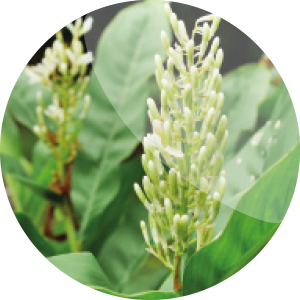
Alpinia Galanga (L.) Willd
- • Antiallergic effect
- • Antioxidant power
- • Antimicrobial effects
- • Antiviral properties
It is also known to bear antitumor and anti-inflammatory activity.
Its therapeutic use covers many indications.
In external use, it is recognized for its antiseptic effects on skin irritations
Finally, Galanga has demonstrated its effectiveness in fighting pain through its analgesic effects.
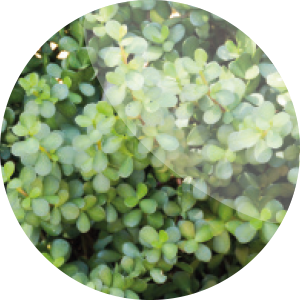
Bacopa Monnieri (L.) Pennel (Brahmi)
- • Positive effect on the brain system
- • Improvement of short- and long term memory, concentration and learning ability
- • Stress tolerance
- • Antioxidant power
It particularly helps to improve short- and long-term memory, and improves concentration and learning abilities.
Bacopa monnieri is also a potent natural antioxidant, and protects against free radicals which cause cell damage. It is also used to relieve and prevent stress, another key factor responsible for ageing.
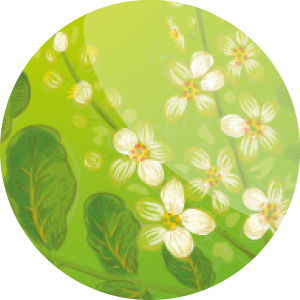
Boswellia serrata
Modern medicine and pharmacology are increasingly using it as an antiarthritic, anti-inflammatory,antihyperlipidemic (controls blood lipids), antiatherosclerotic (anti-coronary plaque), and analgesic (pain-reliever).
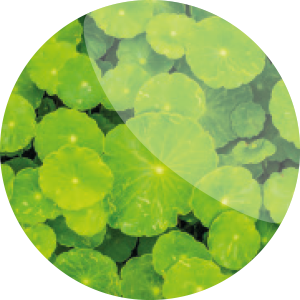
Centella asiatica
It is prized for its regenerative virtues and properties that promote memory and concentration.
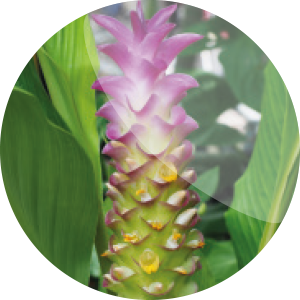
Curcuma Longa
- • Antiallergic effect
- • Antioxidant power
- • Anti-inflammatory properties
- • Preservation of the body’s natural defenses
Turmeric is known for its antioxidant properties in traditional medicine and in the West. It helps the body to combat stress and maintain effective natural defence mechanisms.
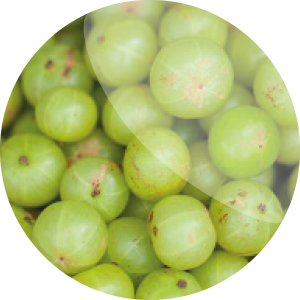
Emblica Officinalis Geartn (Amla)
- • Anti-inflammatory properties
- • Antimicrobial effects
- • Antioxidant power
- • Used traditionally to treat glucose intolerance, cerebral insufficiency, and mental disorders
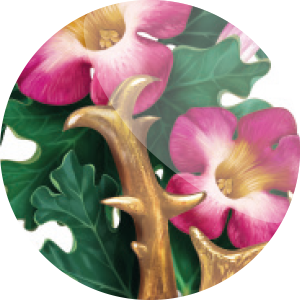
Harpagophytum procumbens
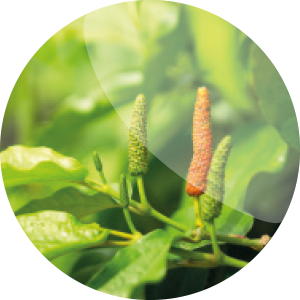
Piper Longum
It has a hotter, slightly sweet flavour, not quite as strong as black pepper (this pepper has a similar taste to cinnamon). Pepper is now a spice which is used almost everywhere in the world.
Piper longum is a major plant in Ayurvedic medicine, in which it is known as pippali . It helps the body to resist stress and is used in India for the treatment of respiratory disorders, such as bronchitis and asthma, but also for its beneficial effects on the digestive system.
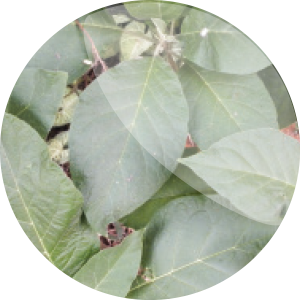
Withania somnifera (Ashwagandha)
- • Impact on neuronal growth and the locomotor function
- • Sleep-facilitating effect
- • Stress tolerance
The leaves and roots are the most widely used parts of the plant.
Ashwagandha is one of most reputable and most widely used adaptogens in Ayurvedic medicine. By increasing its ability to resist stress, it allows the body to store and sustain its vital energy throughout the day, while promoting deep sleep.
